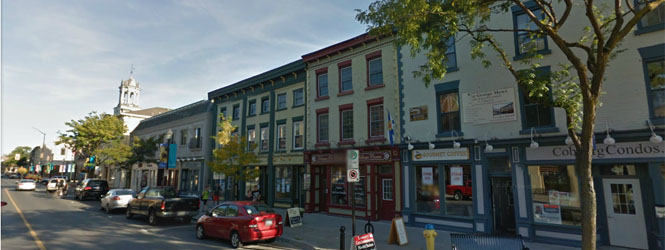Economic development in West Northumberland is undergoing a major transformation as politicians search outside the box to find solutions to stimulate growth locally.
Port Hope council chose to clean house in both tourism and economic development very shortly after coming to office as a way to start fresh, while Cobourg council has taken a more lengthy and deliberative path with numerous studies over the past 18 months.
But a tipping point is imminent.
With the closure of the IdeaHub in Port Hope, an important catalyst for stimulating entrepreneurship is lost. The 31 businesses using the facility designed to help support start-ups was providing opportunities for business development in the region.
The Community Futures Development Corporation offered $50,000 last year to help, but it was before the current council was up to speed. The money was left languishing, just like the IdeaHub. Now, Mayor Bob Sanderson is taking a hard second look at what the town should do to help stimulate innovation and grow fledgling businesses.
Meanwhile, Cobourg received multiple reports last week related to the local economy.
First, there was the Community Improvement Venture Initiative (CIVI), a downtown business development agency aimed at stimulating investment and development in the town’s core. Besides marketing the downtown, this arm’s length board of public and private sector leaders will also have the ability to buy and sell property, hand out loans and give grants to stimulate business.
Next came a new economic development strategy involving some significant realigning of priorities. Included inside the report was a proposal to create a business incubator, along with the usual business supports and programs currently underway.
Notably, the Cobourg Taxpayers Association was quick to criticize the plan, saying it was a waste of money. It pointed to troubles with similar downtown agencies in Winnipeg, Brampton and Oshawa.
Certainly other municipalities have tried to create arm’s length boards to advance the development of their city’s centre with varying levels of success. Challenges, such as oversight, transparency and accountability, are critical. But a few bumps in the road should not mean the idea is not worthy of serious consideration for Cobourg. More likely, these should be cautionary tales.
The bottom line for both municipalities is simple: it is time for radical rethinking of our local economic future.
Deep inside the CIVI report, there is an insightful paragraph: “Growth strategies built around industrial and commercial recruitment are less and less effective”.
The old approach of attracting huge industries or big box retailers with numerous jobs is gone. The manufacturing sector is not looking with the same intensity for large tracts of serviceable land with an aim to hire hundreds of people.
Tourism as an antidote for local economic stimulation is also fading quickly, too. With every Ontario municipality fighting for visitor dollars, it has become intensely competitive, making it extremely difficult to depend on.
Other solutions must be found. Both municipalities are working hard to find the elusive combination of stimulation, support and sustainability to map out a viable future. Critics will be plentiful. But doing nothing is not an option either.
Originally published: Column
March 23, 2016



